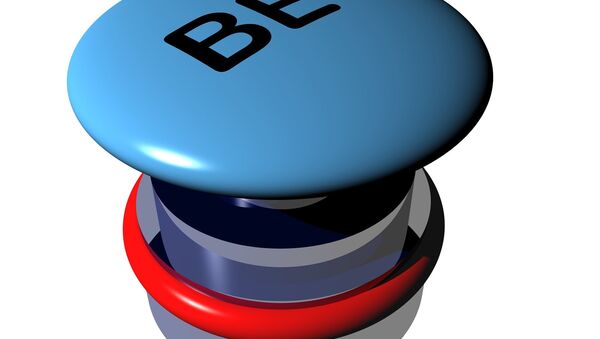A number of pundits have decried the pollsters for their inaccuracy since the Brexit vote was announced, surprising many who had predicted a narrow win for Remain. But Mike Smithson told Sputnik that contrary to popular belief, the polls were actually quite a good indicator:
"There were a number of polls which had indicated that there was going to be a leave vote. But there had been a number, in fact quite a few of the polls, were very close — within 2,3,4 per cent which is all within the margin of error. So actually, I think sometimes we expect too much from our polls in terms of accuracy. Within 3,4 per cent, that is the standard margin which you'd expect."
A reminder that Nigel Farage bet £1,000 of his own cash on this result pic.twitter.com/de5Hadwwsq
— Michael Deacon (@MichaelPDeacon) June 24, 2016
More and more these days, elections and referendums inspire people to take a bit of a flutter, and the EU referendum was no exception. Approximately US$54.5 million was spent by the British public taking bets on the outcome, with one woman betting around US$136,000 on a Remain victory. The UKIP leader, Nigel Farage, famously put a US$1362 bet on a Brexit.
"Bookmaking is a mathematical formula — if more people want to bet on Remain, then Remain will have tighter odds i.e. you will get smaller returns than people who want to bet on Leave. It's not a question that anything is right or wrong, it's simply that they reflect what people who want to bet are doing and that's all odds are doing," Smithson said.
Nige making his customary bet on #VoteLeave @Nigel_Farage pic.twitter.com/vzzAuVB3Si
— Eliot Smith (@EliotSmith) June 14, 2016
"The odds are not saying, it's like saying if a 20-1 outsiders wins the Grand National, people don't say 'well the bookies got their odds wrong' it's just that it was a long shot that won it. I don't think it's apt to use terms 'right or wrong.' "
Historically, people have tended to look to bookmakers' for accuracy in predicting election results, as — given the high stakes, one would expect them to be more cautious — but Smithson stressed that bookmakers' and pollsters can't really be compared:
"They just look at the money that's coming on and if more money is coming on for remain then they will have tighter odds for remain — simple as that. It's a simple mathematical formula and it's not how many bets there are, it's the actual volume of cash because at the end of the day a bookmaker wants to make sure that he makes a profit whatever happens."
Brits voted to leave the EU by a margin of 1.9% in a UK-wide referendum held on Thursday, 23 June 2016.




